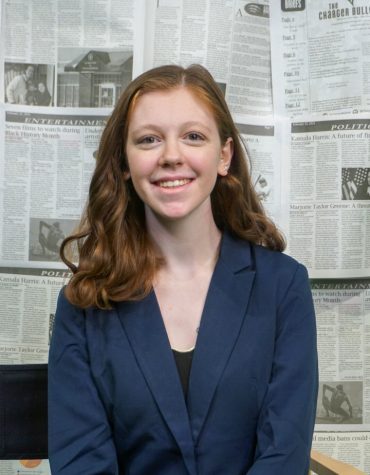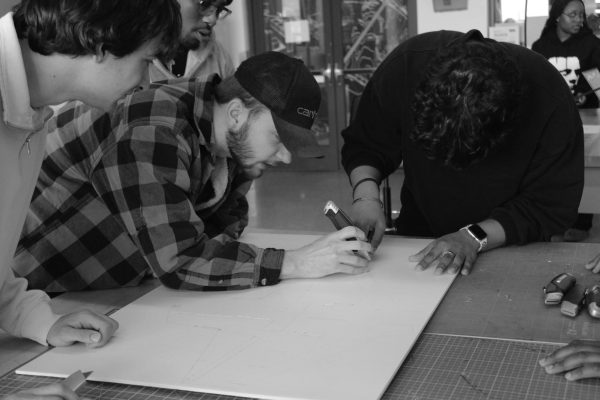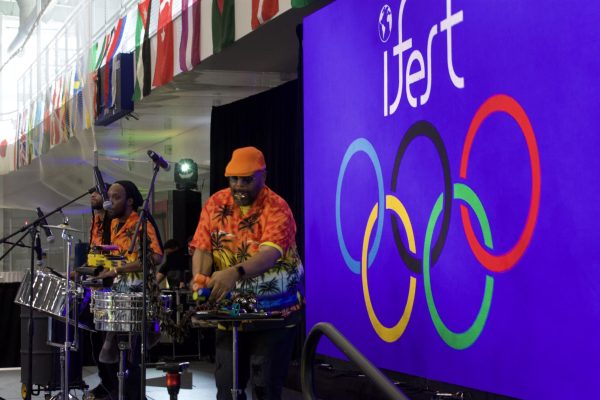University faculty step up to help students struggling to find internships in the time of COVID
As the COVID-19 pandemic hit and internship opportunities grew scarce, panic rose among students required to complete an internship before graduation. Luckily, by summer 2020, faculty at the University of New Haven had created a plan to help their students gain the experience and credit they needed.
Executive director of the Career Development Center (CDC) Matt Caporale said that since the beginning of the pandemic, internships among University of New Haven students are down about 40%.
“We have also been pounding the phones to our employer partners trying to drum up as many remote internship opportunities as possible,” said Caporale, “and have begun partnering with virtual internship providers to connect students with opportunities.”
Caporale said that the university recognizes the impact that the pandemic has had on internship opportunities, and created new COVID internship guidelines to help students stay on track to graduate.
These new guidelines encourage students to seek remote internships or suggest that students postpone their internships. Caporale said, however, that postponing internships only works for those who have “ample time remaining in their studies,” rather than those about to graduate.
If a student is not able to find or postpone an internship or a remote internship, faculty were able to create alternate assignments to help students fulfill their internship requirements.
“These assignments are varied but have included career-related assignments such as resume/cover letter writing, career assessments, attending Career Development workshops, conducting informational interviews, as well as career and academic research projects,” said Caporale.
This option is also available to students who were already approved for an in-person internship. Caporale says that if those students would feel more comfortable switching to a virtual or alternate assignment because of the pandemic, they will not be penalized.
Along with the CDC creating new programs for students, academic departments had to design new, alternate assignments for their students.
Adam Caress, music industry internship coordinator and Patrick Rivers, music industry program coordinator worked together to create alternate assignments for those in the music. Caress said they worked under the direction of Division of Performing Arts Chair Erica Haskell to create alternate assignments that provided students with a similar experience of an internship.
“We are confident that the solution we have devised will provide our students with a hands-on experience and tangible accomplishment that will be valuable to them in their future Music Industry careers,” said Caress.
Caress said that students are creating a hands-on project related to the field they want to go into, which ranges from “recording, marketing, research, etc.” Students will give a progress report during midterms and a final presentation to a panel of music industry faculty.
Similarly, the criminal justice department has created an alternate internship program called the “second track option.” The assistant chair of criminal justice Martin O’Connor said that the second track program consists of three parts and that students work with a faculty member and a graduate assistant throughout the process. The first component is that students must conduct at least five interviews with a professional in the field they want to go into and the second requirement is that students work with the CDC in a self-assessment program, and lastly, they have to work on a “comprehensive career plan” to get into the field they want.
“In the fall semester, we had about 23 students participate in this program. And for the spring, it’s about 62 students,” said O’Connor.
Senior Inari Wimberley is one criminal justice student who struggled to find an internship after COVID-19 hit. She worked with O’Connor during the fall 2020 semester to receive her internship credit.
“It was a great alternative for students like me, who wanted to graduate on time and who had trouble finding internships due to the pandemic,” said Wimberley.
Although the value of a traditional internship is undeniable, University of New Haven faculty has been working to adapt their programs so that their students can still get the experience and connections they need.

Beth Beaudry is a senior majoring in communication with a double concentration in journalism and public relations, and a minor in English. This is her...






